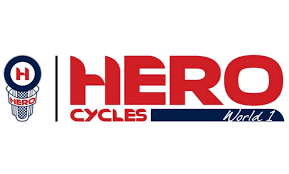Global cycle industry is booming, India has to catch up
- Thothathri Raman

- Jun 9, 2021
- 3 min read
Updated: Jun 10, 2021
Indian cycle making industry is large with years of experience and also with good export potential having already opened markets in over 70 countries worldwide. In terms of the quality of cycles also the Indian manufacturers have been able to match with the best in the world even though the Indian companies do not figure in the professional cycles and premium cycles front nor the Indian cycle teams visible in the global cycle races and rallies which considering the size and reach of the market of Indian cycle makers should have been achieved long ago.
Part of the problem lies with the inadequate coordination among the cycle manufacturers, retailers, OEM manufacturers, dealer networks and the retailers and the professional cycling associations of the country. Despite the strong presence of the Cycling Federation of India in the Asian cycling circuit with the Indian CFI president also featured as the Secretary General of the Asian Cycling Federation.

Indian cycles manufacturing is picking up despite the Covid 19 set back along with the world trend. There is also room for more. It is of course unfortunate that the century old Atlas cycles had to close down its three plants for lack of working capital one year ago ironically on the World Cycling Day June 8, 2020. Delhi plant that manufactured 200,000 cycles was the last plant to close down.
A 2019 United Nations Development Organisation (UNIDO) report stated that the US $ 1.5 billion Indian cycling industry manufacturing annual 15.5 million cycles being the second largest in terms of the size of the industry in the world needed research and development support. The UNIDO project aimed to support the Indian bicycle industry by strengthening the capacity and capability of the nodal technical institution for the sector, the Research and Development Centre for Bicycle and Sewing Machine (RDCBSM), and select industry associations - the All India Cycle Manufacturers’ Association (AICMA) and the United Cycle and Parts Manufacturers’ Association (UCPMA) - to provide better management and technical support to the industry to strengthen the global competitive position of the Indian bicycle sector.

A decidedly old dataset pertaining to 2017 projected the global bicycle market is expected to reach an estimated $34.9 billion by 2022 and is forecast to grow at a CAGR of 2.7% from 2017 to 2022 (Research and Markets, 2017). With the current worldwide boom in cycle sales the number would be surfaced at least by 50 per cent the global bicycle industry commentators expect.
The Indian bicycle industry is lagging behind both in terms of market share and also in terms of annual growth besides having faced the shut down of one of the largest manufacturers Atlas cycles. According to AICMA the sales of the Indian bicycles were down to about 12 million even though the production capacity was around 15.5 million. There is clearly much ground to be covered. The UNIDO report observed that The industry is a two-tier industry- the component market comprises mainly (3500-4000) SMEs; whereas bicycle assembly/production is dominated by (mainly four-Now three) large-scale companies, controlling 85% of the market.
The component-producing SMEs are largely informal and unorganised, using conventional and mostly manual technology. The technology level of the industry is considered largely basic (with the production of steel components/bicycles), there is also a lack of know-how for special components, limited automation, limited design abilities, limited exposure to best practices in production technology and the absence of an internationally accredited standards system.
The component manufacturing was hit very hard owing the now two year old currency demonetisation and the latest Covid 19 related nationwide lock downs. What is needed is a big infusion of capital from the government and the banks to help the manufacturers of components and the bicycle assemblers to come back and take up the booming cycling industry sales worldwide. The industry associations including the FICCI, ASSOCHAM, CII and the state based associations like the PHDCCI, Karnataka Chamber etc., should launch a coordinated effort to get the industry moving.
There is also much work to be done in the area of E-cycling which is picking up big time. At present lesser than two dozen brands have been launched in this segment in India accounting for minuscule sales even though the trend is showing a big growth. We will cover this in another segment soon. UNIDO has provided a good KPI listing for the cycle manufacturers to follow which covers all aspects of manufacturing and sales that could be tracked for effective production strategy.

For our part, the cycletofuture.com would be constantly monitoring the situation and provide knowledge input wherever necessary.








Comments